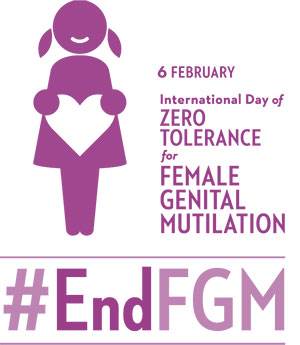Norway’s intervention at International Day of Zero Tolerance for FGM, Geneva, 6 February 2017
“Thank you very much for the invitation to take part in this important discussion here in Geneva. Thank you, in particular, to IAC and WHO and the other partners involved in planning this event.
I am glad to be able to speak on an issue that has engaged me for several years in various capacities, including while working in Kenya a few years back. I regret, however, that FGM, despite several positive developments, still remains a challenge of such critical proportions. I truly appreciate the joint efforts of participants in this room to keep up and build on the momentum to end FGM by 2030, which not only should be possible, but which we must make possible.
Eliminating FGM is a key Norwegian priority and Norway strongly supports the global movement on this issue. We recognise the importance of country leadership and partner support, in particular the relentless efforts on the part of women’s rights organization and other civil society organisations. We aim to earmark 70 million Norwegian kroners to efforts directed at ending FGM.
Norway supports the UNFPA/UNICEF Joint Programme in 16 African countries as well as Yemen. This includes the involvement of governments, grass-roots partners, and civil society, including religious and community leaders. Norway has also contributed to capacity building of health personnel within prevention and treatment of FGM, through WHO, UNFPA and UNICEF, as well as through global initiatives in health and education.
We believe that schools can play a critical role in educating students about FGM. Training teachers to spot warning signs of FGM can be an effective strategy for reporting cases, in addition to ensuring that students have knowledge about the practice and their rights. The Joint Programme engaged in teacher training on FGM in Kenya, Egypt and Senegal last year.
In 2014, Somalia became one of our priority countries. We have increased the support given to the work on FGM in Somalia and established collaboration with the authorities. Jointly with the UK Government, we will finance a national FGM programme in support of national organizations lead by Save the Children International, starting this year.
We have seen that through the many programmes and local efforts, the momentum to address FGM is growing. We see that attitudes can change – and are changing. Prevalence rates among girls aged 15-19 have declined by about 40% in Liberia, 30% in Burkina Faso and Kenya, and 27% in Egypt over the last 30 years. Available statistics also indicate increasing disapproval of the practice. Importantly, this includes nearly two-thirds of boys and men.
Norway works to create synergy between the work internationally and what is being done in our own country, which brings me to the question: What are we doing on the home-front? Let me share a few successful practices and initiatives.
Norway has passed a specific law prohibiting FGM, including a duty of prevention. We have also developed an action plan with a range of measures focusing on strengthening preventive work in schools, support to NGOs and improved coordination and collaboration in our public services. Some measures are mainstreamed, other initiatives are specialized.
A national center of competency has been in operation since 2008. We have information and resource material available in a series of relevant languages, accessible for both public servants and at community level. We have established a system with regular points of contact and information on FGM within affected communities. This includes information to refugees considered for resettlement to Norway, as well as at centers for asylum seekers. “Integration counselors” work at some foreign missions to assist in concrete cases, for example where a girl living in Norway has been sent to her/her parent’s country of origin for FGM and/or forced marriage.
Routines have been established to ensure that all girls in Norway originating from a country with more than 30% FGM are invited for counseling with the school nurse, and also offered clinical examination. We also have a system of “minority counselors” who collaborate closely with pupils, teachers, school nurses, parents and child-welfare services in minority communities in Norway. In several hospitals across the country, we have established a special clinical offer for women suffering post/FGM complications. (All services are free of charge and easy to access.)
There are also two joint platforms that have been established, and which we consider valuable, for knowledge sharing between actors working in Norway and actors engaged through the Norwegian development collaboration.
What remains evident, in both our efforts at home and abroad, is that while ending FGM is possible, it is not an easy task. The combat of FGM is an emblematic one. It paves the way for many struggles that invoke the rule of law on behalf of individual rights and self-determination and autonomy, particularly as it relates to sexual and reproductive health and rights.
FGM is both a result of - and a perpetuation of - gender inequality and discrimination against women and girls. Like early, forced and child marriage, rape and domestic violence – FGM must be a top priority of governments, civil society and international organisations. On behalf of Norway, I look forward to working together with you in joining forces to end this practice within the next 13 years – the clock is ticking!”
More on Norway and FGM: UDI resources / Action Plan (in Norwegian)
For more information on FGM in general: UNFPA / Joint Programme
